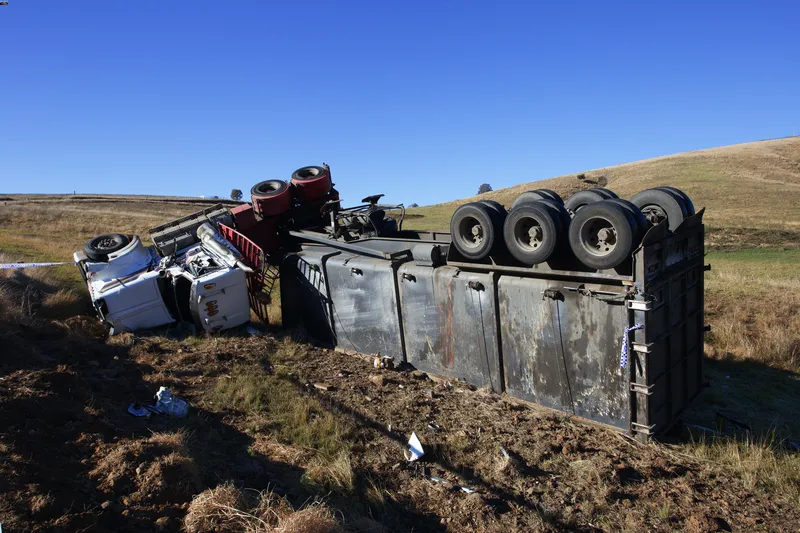
The dangers of being involved in a trucking accident are obvious.
The weight and size of an 18-wheeler makes nearly every collision serious, if not catastrophic.
In Missouri, there were nearly 100 motor vehicle fatalities in 2012, involving large commercial trucks.
The same was true in Arkansas.
There are several common contributing factors in trucking accidents, which often lead to negligence claims against truck drivers or others.
Driver Error
Arguably, driver error may be the most common cause of trucking accidents.
First, driver error is a broad category that includes distractions, failing to obey traffic rules, driving while intoxicated, and driver exhaustion.
Essentially, anything that prevents a truck driver from being able to see, react or make proper judgments results in driver error.
Weather and Road Conditions
Weather conditions, such as snow, ice, and heavy rain can cause truck drivers to lose control of their rigs, which can be disastrous.
Due to the size, weight, and dimensions of commercial trucks, along with the nature of the load being carried, it is even more likely that the driver may lose control in bad weather conditions.
If a truck driver is not experienced in handling a rig in poor weather or road conditions, driver error may again be a contributing factor.
Mechanical Failure
While, in some cases, mechanical issues cannot be avoided, there may also be an issue of poor maintenance, defective equipment, or misuse of equipment, which results in a trucking accident.
If the reason for the mechanical failure was avoidable, then there may be a case for negligence and the basis for litigation.
Improper Load Distribution
Loading an 18-wheeler is a very important task. If the load is not properly positioned or secured, it can result in shifting, which may cause the truck driver to lose control.
It can also result in the truck losing the load, create an extremely hazardous condition on the roadway for other drivers.
Preventing Trucking Accidents
There are many things that can be done to prevent, or at least decrease the number of trucking accidents that occur.
First, truck drivers and trucking companies must follow the Federal Motor Carrier Regulations, which are put in place, primarily for the safety of the truck drivers and other individuals on the road.
Also, reducing driver error by, in part, paying attention and following the rules, can also reduce the number of trucking accidents.
Finally, trucking companies must be responsible and actively enforce the rules and regulations that require safe vehicle operation.
Some companies now use electronic data records, which can help deter some conduct that results in driver error.
Also, rigorous enforcement of the rules regarding hours of service will help to reduce driver exhaustion significantly.
What Are Some of the Trucking Regulations?
The Federal Motor Carrier Safety Administration (FMCSA), a division of the U.S. Department of Transportation, is responsible for providing guidance and regulatory oversight of the commercial trucking industry.
Some of the regulations the FMSCA enforces include medical requirements for truck drivers, including drug screens; rules regarding transportation of hazardous materials; and loading and positioning of cargo.
There are many others that may or may not impact your case.
Contact Our Truck Accident Lawyers
If you have questions regarding trucking accidents, or any other personal injury concerns, call the Cottrell Law Office at (888) 433-4861.


